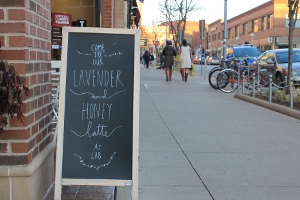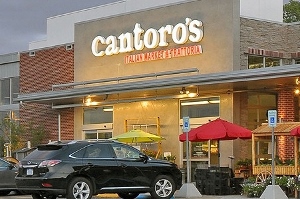There’s no question that the “buy local” movement has made great strides within the last decade, fostering a sense of corporate responsibility among well-known grocery chains, a spark of community-based “Choose Local” campaigns, and a reinvention of the manner in which we use local resources.

In a speech recently given as part of Zingerman’s ZingTrain speaker series, economist and author Michael Shuman argued affirmatively, discussing the several untold economic benefits of supporting community-based businesses.
Research has shown that regions with the highest concentration of local businesses also have higher per capita job growth and more profound income growth. According to Shuman, every time a consumer spends a dollar locally, 2 to 4 times more jobs, income, and taxes go back into the community than if that same dollar had been spent at a non-local business.
In many Michigan communities, these benefits are already transforming the ecosystem in which locally piloted enterprises operate and grow.
Who Creates Local Prosperity?
Despite overwhelming evidence in favor of community-based commerce as a means towards regional prosperity, we still see many examples of economic developers offering grants and tax incentives to encourage non-local businesses to take up residence in their areas. The argument for these actions is convincing at the surface level: in many cases, developers assume that these companies, which boast a record of success, will bring employment opportunities, investment, and talent to the places in which they locate.
However, according to Shuman this “mutually beneficial” arrangement actually does much more for the non-local business than for the locality it’s purporting to help. In many cases, this spectrum of incentives essentially allows non-local enterprises to transplant their current operation into a newer, cheaper place. Rarely does this equate to new and abundant employment opportunities for local residents; rather, those already working for the company tend to relocate right along with it.
This outside business then begins competing with smaller, community-based establishments. However, they do so at an advantage, operating with grants and tax breaks not offered to their smaller, locally-owned counterparts.
In shorter and blunter terms, economic developers have adopted a harmful practice of attracting and then providing non-local enterprises with the resources necessary to run their local equivalents into the ground. Considering the many benefits that local businesses provide to the community, this practice seems at best counterintuitive and at worst harmful to local economies.
The Alternative

Instead, Shuman suggests that local entrepreneurs can build this environment themselves. He calls these local business owners “pollinators.” Bees pollinate for the sake of their own survival, yet without realizing it their activity drives the growth and reproduction of other species. Similarly, driven individuals (while working towards their own success and profitability) can foster a collaborative ecosystem in which other growing organizations have the potential to succeed. Successful business owners identify areas of potential growth, mentor new entrepreneurs, work in symbiosis with other enterprises offering a complimentary service, make goods more widely available, and help reinvest in local commerce.
The Bottom Line
Shuman suggests that it’s time for economic developers to take a step back and question whether their efforts are doing more harm than good. Have continual agreements with non-local businesses actually paid off in the communities they intended to help? Or are these grants and tax incentives creating (as Shuman suggests) a welfare system for corporations incapable of standing on their own two feet?
One thing seems certain: rather than focus their attention on attracting outside firms, local and state governments would do well to shift focus instead to supporting local entrepreneurs, whose ideas and resources would truly give back to the community.
—

We also, however, see immaterial benefits to buying local. It makes us happier and healthier, and it also helps us feel connected to and involved in the communities we call home. In many Michigan areas, local businesses are community anchors. Think Cops and Donuts in Clare, Chelsea’s Purple Rose Theater, Cantoro’s of Plymouth, and (of course) Zingerman’s in Ann Arbor. These places are thriving businesses, but they’re also destinations for visitors. Owners feel connected to the people that walk through their doors, and pride for the communities they serve.
Juxtapose this against a Wal-Mart in Oriental, North Carolina. Bloomberg writes:
“The Town’n Country grocery in Oriental, North Carolina, a local fixture for 44 years, closed its doors in October after a Wal-Mart store opened for business. Now, three months later — and less than two years after Wal-Mart arrived — the retail giant is pulling up stakes, leaving the community with no grocery store and no pharmacy.”

Take a moment and think about the things that are special about your town, the places that set it apart from anywhere else in the state or nation. In Garden City, I grew up eating Italian food from Amantea’s and Villa Bakery, I spent hours and hours of time learning ballet at Robert Lee Dance Studio, and almost every formal dress for high school dances was acquired after trying on a million options at Eva’s Bridal. Small businesses, whether or not we realize it, are the fabric of our lives. They’re the places in which we work, socialize, and make memories.
So next time you’re questioning whether or not to choose local, keep in mind how much those local businesses are doing for your community, and maybe take pride in spending a extra few dollars. Not only because that money comes back to your city (2 to 4 times!), but because Michigan’s small businesses make this state a wonderful place in which to live, and we’re lucky to have them here.
[/fusion_text][/fusion_builder_column][/fusion_builder_row][/fusion_builder_container]